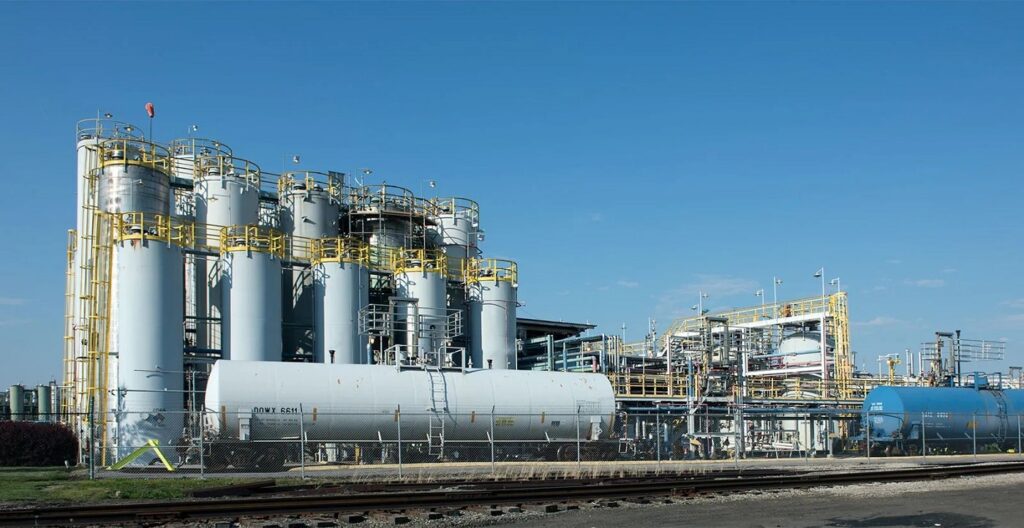The United Kingdom’s augmented reality (AR) and virtual reality (VR) sector is leading the charge in the digital revolution, boasting the fastest-growing market in Europe.
Augmented reality and virtual reality

Opportunity highlights
Radical Innovation
The United Kingdom hosts globally renowned creative and technical expertise, with UK immersive businesses at the forefront of creating groundbreaking experiences across various industries. Digital catapults play a pivotal role in driving this growth by providing facilities for companies and startups to conceptualize, demonstrate, and commercialize their innovative work.
AR and VR for Any Industry
The adoption of augmented reality (AR) and virtual reality (VR) technologies extends across a wide array of industries, including smart cities, engineering, film and TV, gaming, and health tech. With 1,250 immersive technology companies operating in various sectors, the UK’s immersive industry boasts a vast talent pool equipped with diverse and transferable skills.
Connecting for Creativity
The AR and VR sector in the UK benefits from a range of services that foster collaboration and innovation. One such service is Immerse UK, which acts as a bridge connecting businesses to content, applications, services, and solution providers, as well as linking them with buyers and customers of immersive technology in the UK. Companies like Sentireal, an AR and VR firm based in Belfast, attribute their success in building business networks in the immersive technology sector to the support provided by Immerse UK.
Commercial maturity
The United Kingdom’s strengths in augmented reality (AR) and virtual reality (VR) encompass all facets of the industry, ranging from the creation, development, and production of immersive content to the design of software and hardware. The industry has access to a rich pool of talent, including graduates from internationally acclaimed universities like Durham University, known for their excellence in computer science. Notably, Durham University hosts the UK’s first Intel oneAPI Academic Centre of Excellence.
The UK consistently offers grants to support innovation in this field. For instance, in 2021, the “Audience of the Future – Design Foundations 2” challenge made it possible for UK-registered businesses to seek funding of up to £800,000 for early-stage, human-centred design projects related to creative or immersive experiences. This funding encourages the development of cutting-edge projects in the AR and VR sector.
UK assets
The UK offers a variety of hubs that present exciting opportunities in the field of augmented reality (AR) and virtual reality (VR):
Northern Ireland
Northern Ireland is home to several SMEs and corporations that are successfully investing in AR and VR technology. Belfast, a city in Northern Ireland, is rapidly emerging as a key hub in the global technology scene, and it was ranked 11th in the 2021 Tech Cities of the Future by fDi Intelligence.
Scotland
Scotland has strong ties to the AR and VR industry, with roots in gaming. The nation is renowned for offering the world’s first computer games technology degree. Scotland provides a competitive cost structure and a low-risk environment that can foster the growth of AR and VR initiatives. Edinburgh, in particular, is considered one of the leading tech hubs in Europe.
The North East
The North East of England serves as an excellent location for AR and VR technology companies to access tangible market opportunities. The region boasts state-of-the-art research and development facilities, as well as innovation assets, including five catapult centres. One of these centres, the North East Tees Valley – Digital Catapult, plays a significant role in advancing AR and VR technology.
Manchester and the North West
Manchester and its surrounding areas offer a range of production and post-production facilities. Locations like MediaCity, Sharp, and Space Project make it relatively easy for companies to experiment with AR and VR, lowering barriers to entry in this innovative field.
R&D capability
The United Kingdom is home to some of the world’s finest talent, with access to top-tier universities such as Oxford, St Andrews, and Durham, which play a crucial role in supporting research and development efforts. For instance, academics at the University of Oxford collaborate with industrial partners in research council-funded projects to advance the effective utilization of augmented reality (AR) and virtual reality (VR) in sector-funded initiatives.
Tax relief in the form of Research and Development (R&D) tax credits offers valuable financial support to companies investing in research and development activities. Additionally, direct investment from the British government further bolsters efforts in this field. UK Research and Innovation, through initiatives like the Audience of the Future challenge, has invested £39.3 million in the development of new immersive technologies. These investments contribute to the growth and innovation of AR and VR technologies in the UK.
Business and government support
The Digital Skills Partnership plays a pivotal role in providing skills to individuals and enhancing the skill sets within organizations. Its mission is to meet the growing domestic demand in the expanding digital economy.
Vision 2035 reflects the UK’s commitment to supporting businesses in innovative sectors, including augmented reality (AR) and virtual reality (VR). This commitment is evident in the support provided through various funding initiatives. Notably, the R&D tax scheme and the Patent Box scheme work in tandem to encourage and facilitate business innovation. The Patent Box scheme offers a lower effective corporate tax rate of 10% on profits associated with UK or certain European patents.
Networking organizations are also instrumental in assisting the sector. The UK Games Talent and Finance Community Interest Company, for instance, plays a significant role in supporting the games development sector, which is closely linked to AR and VR. These initiatives and organizations contribute to the growth and development of AR and VR technology in the UK.



